THE EXCAVATED MIND CREATES ROOM FOR MEANINGFUL TRANSFORMATIVE ACTION
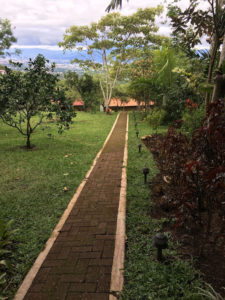
When setting goals at the beginning of the year, we do so with a strong determination to succeed. So why don’t we succeed? Why aren’t we getting the desired results?
When I conduct group coaching on this theme, every year during my 40 Days of Life Coaching, Power Yoga, Pranayama, and Meditation program, I start with assessing the participants’ states of mind. The detailed questionnaire I ask them to complete at the start of the program sheds light on the patterns and tendencies of each participant and gives me a clear idea of the work we will need to do.
To ensure success, we work on rewiring the brain, by releasing patterns and tendencies. When participants begin to change their perspective, they also realize that until they release negative patterns and tendencies the actions taken towards goals are akin to driving with brakes on.
One of the tools that is effective in releasing patterns and tendencies is Authentique’s FUGT coaching model (Forgiveness Unconditional Love, Gratitude, and Trust). It seems simple, but it’s not easy to implement. The good news is that with practice, each participant develops a clearer understanding of the process. Clarity creates the space needed to strategize, and to engage in the actions required in order to reach the desired outcome. Time and time again, during the strategizing sessions, participants begin to let go of the non-loving feelings. This reframing creates a positive and empowering outlook and leaves more space to implement what truly matters.
The key here is that participants begin to understand that there can be no peace of mind when we hold grudges, feel hatred, animosity, experience doubt, and crave approval from others for the choices we make or don’t make.
The other key realization is that to achieve goals without consciously taking meaningful transformative action is not possible. When people feel stuck or give up their goals after purportedly “trying everything, it is generally because they were driving with the brakes on.
Once clarity begins to emerge, and non-loving feelings are released, we become unstoppable and ready to take the necessary action with strong determination because the excavated self is a great engine that drives our actions.
So, what is the appropriate meaningful transformative action?
There are two types of actions: wholesome and unwholesome. Wholesome actions do not harm you nor others, but propel you forward. Unwholesome actions harm you or others, and will drag you down. Use your powers of discernment to know the difference.
Personal goals are set the same way you would set professional goals. You create a plan with the necessary action steps to get the desired outcome. Remember though that even when we set SMART goals, i.e. goals that are Specific, Measurable, Achievable, Relevant, and Time-Bound, we must commit to taking action.
What amount of action should you take? You cannot measure it out—Be bold, set your sight high—chances are, if you haven’t reached your goal, you probably haven’t truly committed to the process.
Taking meaningful transformative action won’t be easy. In general, people try to use shortcuts or simply don’t realize that you must keep that goal at the forefront of your life and do whatever it takes to get desired results. If you’re tired, don’t quit—just rest. And then continue taking small actions daily. Your old habits will start to feel neglected and create some resistance. That’s okay; lovingly examine what your habits are trying to tell you, and forgive yourself for having developed those habits in the first place, and let go of the negative feelings.
As you take action, seek out the multitude of counselors that will be supportive of you. Be in a community that is also committed to meaningful transformative action. Elevate others and minimize judgment of others. Respect others’ journeys.
Starting over and over is also a form of taking meaningful transformative action; each time you start over, you are getting closer to your desired outcome.
Students of Eastern philosophy may ask, why take massive action if we don’t control the outcome of our actions? Ultimately, the point is to be in action all the time, so that the action and the outcome merge. The point is to be in live action, living a life you love.
The key is in your hand

The Buddha says to get out of your suffering, you must let go of your attachments, your aversions and your ignorance.
The third one of these concepts, IGNORANCE, is the one that held the key to my own inner freedom.
Ignorance in the sense of not knowing that there is a way out of your suffering, not knowing that you can use your mind to let go of your attachments and aversions. In other words, the knowledge that we can master our mind and navigate our existence with a sense of inner peace.
As I observed when I embarked on this journey years ago, the developments in technology, the invention and discoveries in various fields have brought much comfort to our existence and stretched our imagination beyond the imaginable, yet these breakthroughs have not alleviated human suffering or distress. In fact, the hectic pace of our lives, the uncertainty of our situation- financial and spiritual- are leading to an existential crisis that manifests itself in all sorts of ways- anger, resentment, fear, loneliness, etc.
Could the way out of suffering then involve becoming the master of your own mind through stillness?
All the great teachers of every religion and faith have had an intimate relationship with stillness. They all have in one way or another created a prominent space in their practices for introspective, meditative moments, moments of silence where they journeyed within. The more life pulled them into its noisy spheres, the more they turned within, the more they sought wisdom or solace from an inner space that made them transcendent in our eyes. Buddha, Jesus, Gandhi, Mandela, Martin Luther King…
In some traditions, meditation is keeping nothing on your mind, it is the act of emptying the mind of thoughts, feelings, wishes, and desires; in others, it’s the repetition of a mantra, the study and recitation of spiritual texts.
My own path always guides me back to the Vipassana meditation. A meditation tradition that teaches us to cleanse, to purify our mind by introspection. Vipassana means seeing things as they really are. We are invited to become observers, to see and feel what really is NOW. We observe our breath and our sensations in every single part of the body, from the crown of the head to the tips of the toes, with equanimity. And we travel up and down our bodies, scanning non-stop throughout the duration of the meditation.
Does the mind stop its chatter? Of course not. The reality is that the mind is always thinking. But what you will come to realize if you stick to a regular practice, is that by meditating twice daily, you’re training your mind to become aware of the impermanence of life. You notice in the process that nothing lasts forever, that a thought comes, but as you keep observing your breath and scanning your body, the mind quiets a little, then another thought comes then it disappears, and the space between the thoughts increases, and the normalcy of things, ideas, stories passing through, begins to resonate with you, and your attachments and aversions begin to evaporate and dissolve little by little.
You discover that you have the power to control your mind. Thoughts come, you let them go, and more thoughts come and you keep letting them go. Again and again. Just like that. You are the one doing the letting go. Only you have the power to control your mind, and your mind only, no one else’s mind.
No matter what we try, no one can REALLY teach you how to meditate. Meditation is a skill that cannot be imparted intellectually. It is s a skill you acquire experimentally, a skill you embody by practicing regularly.
There is no “wrong way” to meditate. Simply put, you cannot fail.
So, choose to take action. Sit on your mat daily and just do it and see and feel what happens, without expectations. You might surprise yourself and come to the realization that the Vipassana meditation offers tools to help you out of your own ignorance by teaching you how to control and master your mind. The contents of the mind will no longer bother you as you become aware of and learn to accept the ever fluctuating condition of our human existence.
The key is in your hand, you know what to do to find inner peace, you know what to do to let go of all of your attachments and aversions.

Would you like to invigorate your body and rejuvenate your mind? Come join me for the 40 Days of Life Coaching, Power Yoga, Pranayama & Meditation- which is back by popular demand! Mark your calendars for January 14, 2019 to February 22, 2019. Early bird registration deadline is December 1, 2018. See flyer below. Register @ www.yogastream.net/
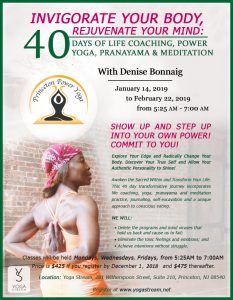
IGNORANCE JUST MEANS THAT YOU DON’T KNOW THAT THERE IS A WAY OUT OF YOUR SUFFERING
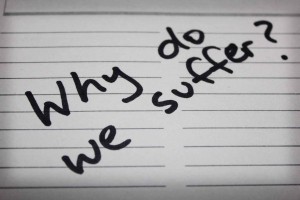
“People are so skillful in their ignorance.”
-Paramahamsa Yogananda
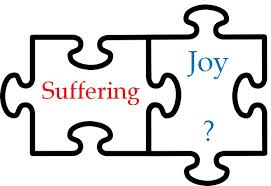 I have not blogged for some time on Authentique Coaching, though I have been present in interacting with many of you, through coaching, yoga, and the practice of law.
I have not blogged for some time on Authentique Coaching, though I have been present in interacting with many of you, through coaching, yoga, and the practice of law.
I continue to produce and run workshops, weekly immersions, and teacher training certification programs through Princeton Power Yoga, while coaching individuals who seek to transform all areas of their lives for the better, and live a more fulfilled life.
Once a year, I continue to attend the silent Vipassana meditation retreats, and just completed my seventh sit. This is a lever like no other, that adds tremendous value to the work I do. So, to me, silent sits are an ironclad commitment- an investment that yields concrete results.
There is something in particular, I keep noticing as a Personal, Life, and Executive Coach, which is that there is a tendency to be ignorant, which all of us have in common, no matter how bright and talented we are.
Your first question may be, how can a bright and talented person be ignorant? I did not say “lack knowledge.” I said “ignorant,” meaning not knowing that there is a way out of their suffering.
That was my biggest take-away from Vipassana this year, and I am determined to help others remove ignorance from their lives, and replace it with joy, peace, and equanimity.
If I can give you the gift of knowing how to eradicate ignorance, I would feel like a large part of my life’s mission is accomplished.
The process is simple. It certainly is not easy. All it takes is commitment. You all know commitment- you have acquired advanced degrees, raised children, started foundations, and run marathons.
You’re totally capable of doing what’s simple, even if it’s not easy.
The first step is acknowledging that you’re suffering and don’t know your way out of it.
The second step is deciding that you want to find your way out of it.
The third step is determining that you will use your mind and your matter (your physical body) to go beyond mind and matter.
I will be doing a deep dive into each step and integrating my FUGT coaching model, into each step. You will become unstoppable, I promise.
Meanwhile, I encourage you to read (if you haven’t already) the blogs below, about the beginning of my journey in moving out of ignorance.
https://authentiquecoaching.com/2013/09/20/be-the-light-and-be-light/
https://authentiquecoaching.com/2014/06/27/a-journey-to-panya-my-second-vipassana-retreat/
https://authentiquecoaching.com/2014/07/17/a-journey-to-panna-my-second-vipassana-retreat-part-2/
A Journey to Panna: My Second Vipassana Retreat…Part 2
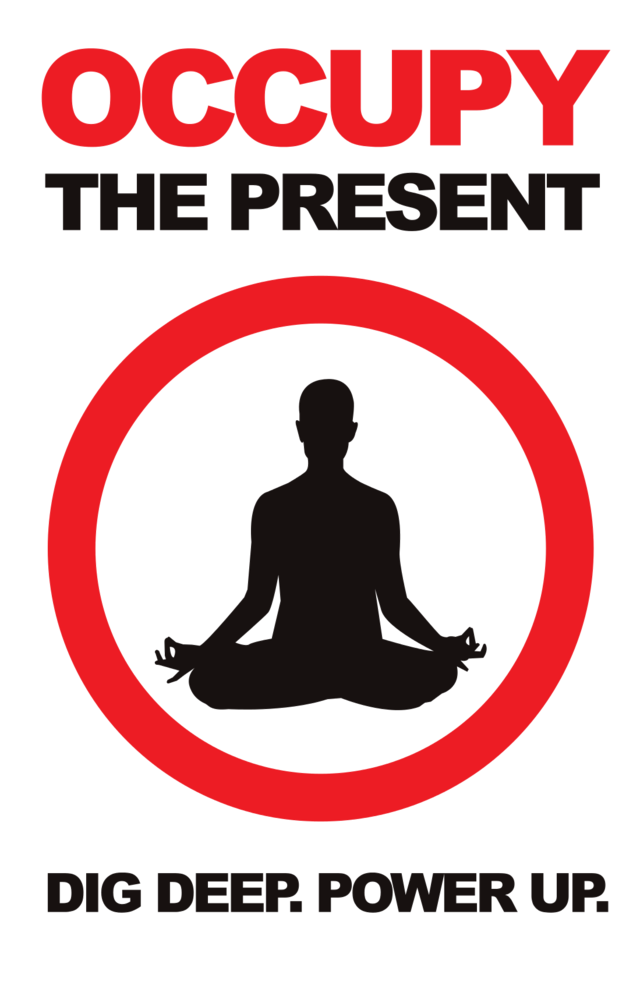 The last time I wrote, I attested to the awesome power of Vipassana meditation, and my second 10-day retreat there earlier this year. Thinking back to that wonderful week and a half I find myself feeling so blessed beyond measure…wow.
The last time I wrote, I attested to the awesome power of Vipassana meditation, and my second 10-day retreat there earlier this year. Thinking back to that wonderful week and a half I find myself feeling so blessed beyond measure…wow.
We left off on Day 6. On day 7, I didn’t go to meditate in my assigned cell at the pagoda. Instead, from 4:30-6:30 a.m., I sat in the meditation hall. My body was aching, and I kept resisting the urge to move. I was playing tough, in that I didn’t want to change my position and I was suffering, and that suffering was massive.
What had gone wrong? The day before I had attained my much anticipated, much hoped-for “A-ha” moment, and now I was miserable. Somehow, I needed to figure out a way to apply Goenkaji’s teachings. I started hearing Goenkaji’s voice in my head. The suffering was still there, but his voice instilled an attitude of gratitude. I was grateful for this opportunity, I was grateful for who I am, and everything in my life. As they say: No regrets.
So by sitting there, and observing the unpleasant sensation throughout my body from head to toe and examining how it felt, I decided that from then on my body would be still. My mind is going to be quiet, calm, alert, equanimous, and whatever situation I find myself in it, too, shall pass.
Every time I wanted to scratch an itch, or whatever the case might have been, I knew that, too, would pass. I cannot talk about other people’s sensations, but I know for sure I experienced the sensation of coming and going away from my own body. One minute I was in Cameroon, aged 5, then aged 7, then 15, and the next minute I was in France, aged 20, then one city or another, then before you know it I found my old self in school in New York and then I was back at Dhamma Dara, in my self-imposed prison.
Then another A-ha moment: I do not have to be my thoughts, I can simply be the observer of my thoughts.
Observing our thoughts instead of being them relieves some of our suffering! Whining and complaining about not having enough money will not put money in your pocket. It just creates deeper and deeper sankara, or misery, that robs us of our clarity of mind. And the joke is that when you really let go, it all comes to you. I have witnessed that firsthand.
What you resist persists…It is our resistance that creates suffering.
– Buddha
And the resistance creates more and more resistance.
The rest of my time at the retreat was spent living in the moment, and I began to aspire to doing dishes and cleaning the toilets in the center. That is what older students like me graduate to; being of service to newer students.
I would like to make a small disclaimer to anyone considering a retreat at Dhamma Dara: The Vipassana technique does not work if it is diluted, blended or turned into a frappé. The meditation hall can be like a torture chamber, but it’s a free torture chamber; donations are only accepted after you have tried the course. I always used to hide behind donating money, but there, service is always more meaningful than money. I have to go and donate my most valuable asset – my time – and serve in any capacity I’m assigned to serve, including doing the dishes, wiping and cleaning toilets. That is my next move, and I’ve already signed up to do that this fall.
A Journey to Panna: My Second Vipassana Retreat
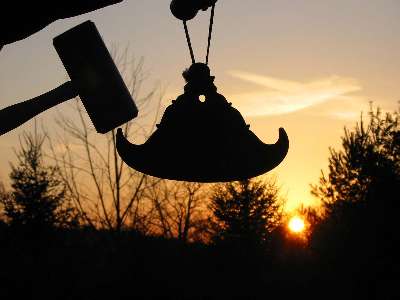 Recently I attended my second 10-day retreat and vow of Noble Silence at the Dhamma Dhara Vipassana Meditation Center in Shelburne Falls, Massachusetts. When I arrived at the center I was greeted with a flood of memories from my first retreat last year and the incredible spiritual journey I experienced with karmic guru SN Goenka (Goenka-ji).
Recently I attended my second 10-day retreat and vow of Noble Silence at the Dhamma Dhara Vipassana Meditation Center in Shelburne Falls, Massachusetts. When I arrived at the center I was greeted with a flood of memories from my first retreat last year and the incredible spiritual journey I experienced with karmic guru SN Goenka (Goenka-ji).
This year was different because Goenka-ji had given up his body not long after my first Vipassana experience last year. Hearing his booming chant, this year, knowing that he was in another dimension, was priceless. He was very much alive and fully present.
From 4 am to 4:30 am, your alarm clock is a gong banged by volunteers who serve. The meditation starts at 4:30 am–we meet in the meditation hall. The day ends at 9:30 p.m. Lights are out at 10 p.m. There are approximately 10 or 11 hours of sitting meditation in complete silence sandwiched in between. At times we heard chanting, but were forbidden from chanting ourselves.
Each day the true treat was the evening discourses delivered by Goenka-ji.
Before the retreat even starts, you have to adopt a certain code of conduct which included 5 strong precepts of the Vipassana technique:
- The rejection of killing – especially in what we eat
- No lying
- No stealing
- No sex
- No intoxicants.
In other words, the senses are not to be indulged at all. For the first 3 days of the retreat, we practiced anapana meditation. The purpose is to tranquilize the mind before embarking on the Vipassana technique on day 4.
- On Day 4, I meditated alone in a cell within a pagoda — a self-imposed jail. I did not have the big insight that I was hoping for, and yet, that was okay.
- Day 5 was fabulous and my ego, which was dormant, knocked on the door. It wanted to go home, because I thought I had achieved mastery of the technique.
- That big ‘A-ha’ moment arrived during the afternoon of day 6 after mud wrestling with my ego. The concept of non-duality is one that I have known for over a decade, and though I understood it intellectually, it was only on day 6 that I experienced it at the cellular level.
Let me tell you what I mean. For example:
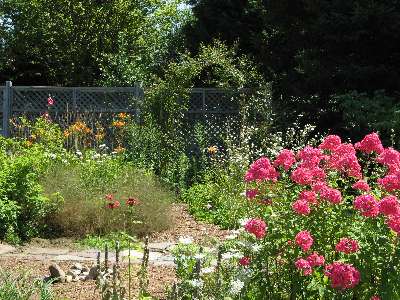 If you can watch sensations come and go, with equanimity (think of a mosquito bite and your urge to scratch it sooo badly), but you know that it will only make it itch more — so you just observe the sensations and don’t scratch it. Because that itch, too, shall pass.
If you can watch sensations come and go, with equanimity (think of a mosquito bite and your urge to scratch it sooo badly), but you know that it will only make it itch more — so you just observe the sensations and don’t scratch it. Because that itch, too, shall pass.
Similarly with your agitating (or itchy) thoughts, you can watch them come and go, without indulging them and being reactive or explosive. You can simply observe them, without attachment or aversion. They will, like clouds, disappear – sometimes those might be storm clouds!
Sitting in the pagoda then, I realized that nothing, and no one, could ever bother me.
As I continued, the connection between mind and body became more apparent. Buddha said, after years of living close to starvation as an ascetic, that one should take care of one’s body. I began to sense the quantum interaction between my mind and the sensations I was feeling in my physical form. My body may have ached from sitting in meditation for hours at a time, but I was determined to keep going, even as I suffered more and more.
Join me next time to discover what happened after day 6!
Your Children Are Not Yours
And a woman who held a babe against her bosom said,
Speak to us of Children.
And he said:
Your children are not your children.
They are the sons and daughters of Life’s yearning for itself.
They come through you but are not from you,
And though they are with you they belong not to you.
You may give them your love but not your thoughts,
For they have their own thoughts.
You may house their bodies but not their souls,
For their souls dwell in the house of tomorrow, which you cannot visit, not even in your dreams.
You may strive to be like them, but seek not to make them like you.
For life goes not backward nor tarries with yesterday.
You are the bows from which your children as living arrows are sent forth.
The archer sees the mark upon the path of the infinite, and He bends you with His might that His arrows may go swift and far.
Let your bending in the archer’s hand be for gladness;
For even as He loves the arrow that flies, so He loves also the bow that is stable.
– From The Prophet by Kahlil Gibran
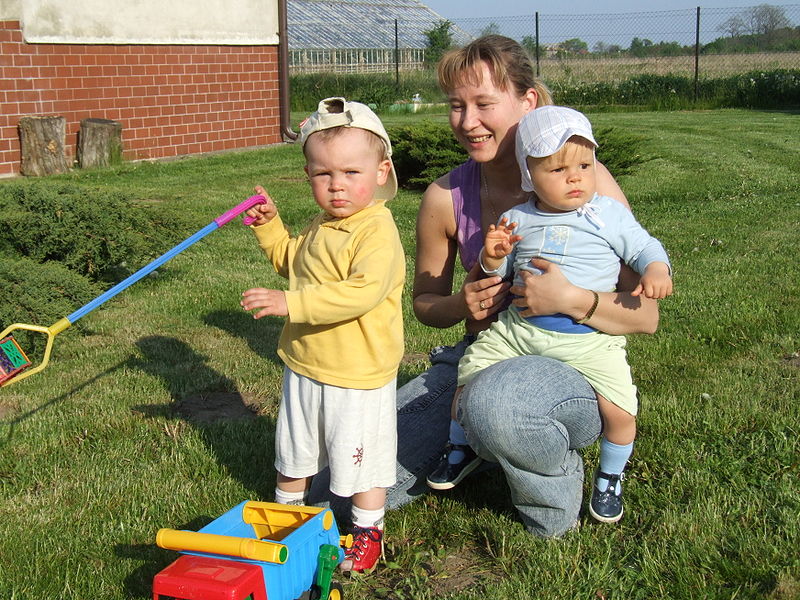 When I read this poem I knew I had to share it. It seems that all around me I see parents not letting go of their children when the time has come. It’s an unhealthy attachment, one that is ages old. Described in Buddhism as Upādāna, attachment takes four intertwined forms:
When I read this poem I knew I had to share it. It seems that all around me I see parents not letting go of their children when the time has come. It’s an unhealthy attachment, one that is ages old. Described in Buddhism as Upādāna, attachment takes four intertwined forms:
-
sense-pleasure (kamupadana) : Pleasure from our senses
-
wrong-view (ditthupadana) : Clinging to false theories and forming speculative theories
-
rites-and-rituals (silabbatupadana) : Eager indulging into rituals and ritual practices
-
self-doctrine (attavadupadana) : Greed arising from the idea that we are eternal, that we exist by ourselves
– Wikipedia
Parental attachment often rises out of fear. What I hear about most from parents is the fear that their child is not going to make it in life, that their child will become a drug user or dropout. Unfortunately, attachment clouds objectivity, and some parents never see just how mature their kids have become on their own.
Living your life without any attachment to the things you like – or aversion to the things you don’t like – helps attain a sense of freedom and happiness, absent of judgement. There is pride and joy when kids figure something out on their own. As a result, children who have a “helicopter” mom or dad doing everything for them will suffer in college.
Helicopter Parent: A parent who is involved in every aspect of a child’s life, especially school. Their own kids often describe them as hovering over them like a helicopter.
So relax a little. Everything around you may be in flux, but you still have to breathe. When you sit comfortably and start to observe your breath, you become an observer. You can be the same type of observer of your kids. But that doesn’t mean inaction. If your child is not doing well, you still need to get to the root of the problem. And that’s where coaching comes in.
Generations Go Best Together
Younger people realize that the world is full of huge problems that they dream of solving, but no one is interested in their views. “You don’t know what the world is really like,” they are told. “Listen to your elders and then you’ll have a better idea of what to do.”
Older people have gained experience and maturity, and have learned about life’s difficulties the hard way, but when the moment comes for them to teach these things, no one is interested. “The world has changed,” they are told. “You have to keep up to date and listen to the young.”
– Paulo Coelho, Manuscript Found in Accra
 The young and the old have been antagonists for far too many generations, and it’s hurting everyone.
The young and the old have been antagonists for far too many generations, and it’s hurting everyone.
Parents often throw the first stone in this war of attrition, by drifting into a “Because I said so,” or “I’m right,you’re wrong,” way of thinking.
I know what is good for you, I have experience, so I don’t want you to make the mistakes I made. I want to save you from those mistakes.
Sound familiar? Unfortunately these sincere attempts at protecting your child from harm may have the opposite effect. Every human being needs to write his or her own story and the mistakes we encounter along the way are teachings. We have to learn from them. For example:
There once was a woman with three sons. Wanting only the best for them, she made it clear to the eldest two that bad grades were not welcome in her house. She supervised their every activity and basically micromanaged their lives. When it came time for her youngest to enter school, the woman had a dramatic shift in her attitude. She no longer put pressure on her son. She let him be himself.
You may have figured out I am that woman. And my new way of doing things with my youngest is creating a child who is going to be every bit as successful as his brothers.
Give your children roots and wings. Roots by acting the way you want them to be; leading by example. When it’s time to let them go, let them go. To their choice of college to study their chosen field.
When I was growing up I know I hid my stumbles and pitfalls from my father so that he would not worry – and my intuition tells me the same thing is happening to us and our children. Why should they keep it secret? Break down the wall between generations. And that might be as easy as just taking a deep breath.
Love
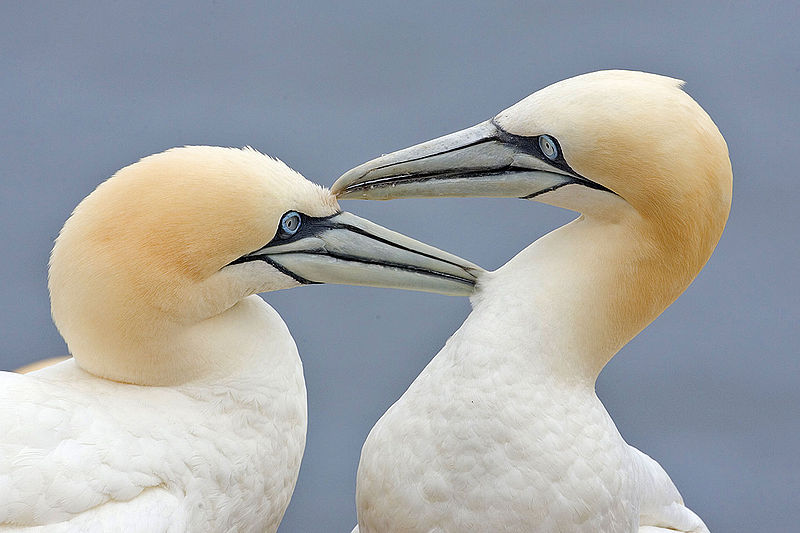 The other day I got inspired by a thought: Have I ever had to explain what Love is to someone? Whenever I say “I love you” to someone they seem to understand what I mean. So I tried to imagine explaining the concept of Love to a child who hadn’t yet figured it out. If we look In the dictionary we see that Love can be a noun, verb or adjective.
The other day I got inspired by a thought: Have I ever had to explain what Love is to someone? Whenever I say “I love you” to someone they seem to understand what I mean. So I tried to imagine explaining the concept of Love to a child who hadn’t yet figured it out. If we look In the dictionary we see that Love can be a noun, verb or adjective.
Love (n, v, adj) refers to a variety of different feelings, states, and attitudes that range from interpersonal affection (“I love my mother”) to pleasure (“I loved that meal”).
I could also turn to the musical Les Misérables for an answer. As the main character Jean Valjean succumbs to an illness there is a point where all music and singing stop, and the theatre is filled with silence…until the chorus sings the following words:
To love another person is to see the face of God.
Over the years I’ve encountered some people that define Love not by how it feels, but how it feels to live without it. They often do not love themselves, and that fundamentally affects the interactions they have with other people. People stuck in a “funk” of non-loving feelings project them outward, and invariably those destructive emotions ricochet right back at them.
Every person you meet is a mirror.
If you put love in other people, that is what you will get back. But what should people do if they look in the mirror and they don’t see love? In my coaching practice I have seen many breakthroughs arise from performing a simple exercise called stream of consciousness exploration. In order to explore our subconscious it often helps to sit down with a piece of paper and a pen, and write everything that comes to mind about a certain word or concept – in this case, “Love.”
The process encourages connections between the different experiences and preconceived notions you may have about Love. Eventually you will realize that Love is not an emotion, but a state of being – a way of life.
And why not start that new way of life with a box of chocolates? Happy Valentine’s Day!
Legends Live On
![Nelson_Mandela-2008_(edit) {{Information |Description={{en|1=Nelson Mandela.}} |Source=http://www.flickr.com/photos/sagoodnews/3199012558/ |Author=[http://www.sagoodnews.co.za/ South Africa The Good News] |Date= |Permission={{cc-by-2.0}}{{flickrreview|Kjetil_r|2010-03-15}} |other_](https://authentiquecoaching.com/wp-content/uploads/2014/01/nelson_mandela-2008_edit.jpg?w=229) My first hint that something was not quite right was when my husband left a voicemail for me in the middle of the work day. I was going to call him back when I saw the reason he called me on the web: Mandela had died.
My first hint that something was not quite right was when my husband left a voicemail for me in the middle of the work day. I was going to call him back when I saw the reason he called me on the web: Mandela had died.
It was just a week earlier that I had asked my employee Mahima if she had heard any news about Mandela’s condition.
It’s awe-inspiring how great leaders can influence so many. Legends like Mandela are more than just people; they are almost transcendent in their wisdom and foresight. In Mandela’s case, wisdom beyond his years led him through his suffering without ever giving up the same dignity and compassion he was demanding for every single person on this earth.
When Nelson Mandela took back his freedom and made his first trip to the US, I was working for a law firm with ties to him. I was given the opportunity to see him speak at Yankee Stadium along with my colleagues. There were cocktails and celebrities like Oprah, Toni Morrison and Phil Donahue…but the real attraction was the man who spent 27 years in jail on trumped up charges based on despicable, inhumane laws…and was standing before us full of forgiveness and devoid of bitterness.
While Mandela’s resolve ultimately led to the end of that vicious system of Apartheid, I sat at the sidelines and just observed what happened. What could I do? And how could I bring others to do something with me?
Perhaps you and I can be more like Mandela if we draw inspiration from some of the same places as he did, as in this short yet powerful poem by William Ernest Henley:
Invictus
Out of the night that covers me,
Black as the Pit from pole to pole,
I thank whatever gods may be
For my unconquerable soul.
In the fell clutch of circumstance
I have not winced nor cried aloud.
Under the bludgeonings of chance
My head is bloody, but unbowed.
Beyond this place of wrath and tears
Looms but the Horror of the shade,
And yet the menace of the years.
Finds, and shall find, me unafraid.
It matters not how strait the gate,
How charged with punishments the scroll.
I am the master of my fate:
I am the captain of my soul.
Soaring or Sinking, what’s your pick?
 Part of being a coach is to be constantly learning new things. That’s what I was doing when I found myself being coached by another student at a continuing education class at New York University the other week.
Part of being a coach is to be constantly learning new things. That’s what I was doing when I found myself being coached by another student at a continuing education class at New York University the other week.
We had to break into groups of two in which each member would coach the other one and vice versa. As I was enjoying the insights my partner pointed out in my life, the conversation took a different course.
Where do you find the time to do all that you do? You teach at Princeton Power Yoga at 5:30 am, you commute from Princeton to TriBeCa, you have your own law firm in the city, you coach, you have kids, how do you do all that?
That question I find to be quite profound because I had never sat down to think about me, honestly. I coach people, and get them to reflect on every facet of their lives, yet I never sat down to see exactly why my practice seems to work, and why other people want to emulate me.
There’s only one thing that I can really see and the main thing that I’ve seen happen in my life is that burning passion that I have for every single thing that I do. Having passion inevitably transforms what I do into something of value. In other words, it’s not only helpful to me, but also for the other person. Who would wake up to be at a yoga class at 5:30 am for forty days with the same teacher? My answer is: Ask the 100+ students who have taken my classes in Princeton. For us, waking up at 5:30 am to do Yoga is really not a big deal.
Passion is not reserved for the Yoga studio. When I am doing bench presses or when I am in the courtroom, I am passionate. Additionally, I married a man who has always let me soar in every dimension. I play the game of Life with a passion for being successful, and I feel as entitled to achieve my dreams as any male colleague.
And it’s over-achievers whom I primarily coach. They may come see me if they are dissatisfied with their lives or they cannot connect with their true selves. They are looking for that missing ingredient and what I’m saying is that I can ignite that missing ingredient; I can come up with a coaching model that would really ignite that passion because every single individual has passion, just like peeling the layers of an onion, it’s like discovering your true self. Who are you? In reality?
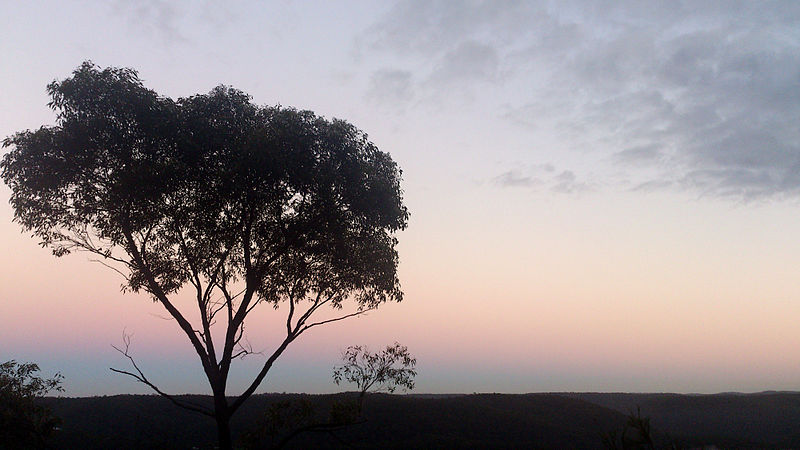 “Everyone can rise above their circumstances and achieve success if they are dedicated to and passionate about what they do.”
“Everyone can rise above their circumstances and achieve success if they are dedicated to and passionate about what they do.”
–Nelson Mandela
Everyone can rise above their stature and achieve success, but how does one choose that success? I bring people to excavate, to uncover that thing which is missing, that one missing ingredient.
What are you missing?

